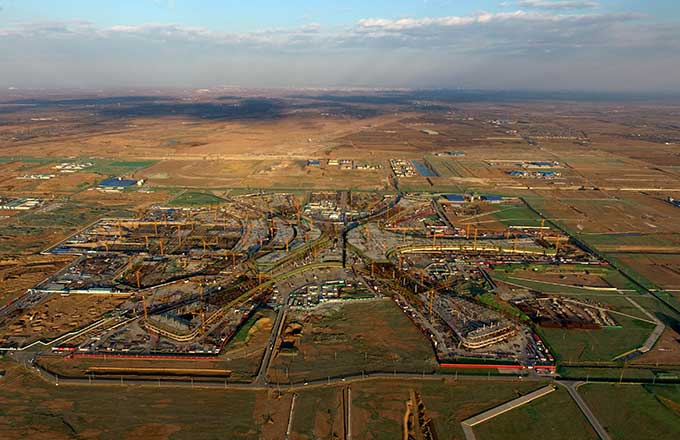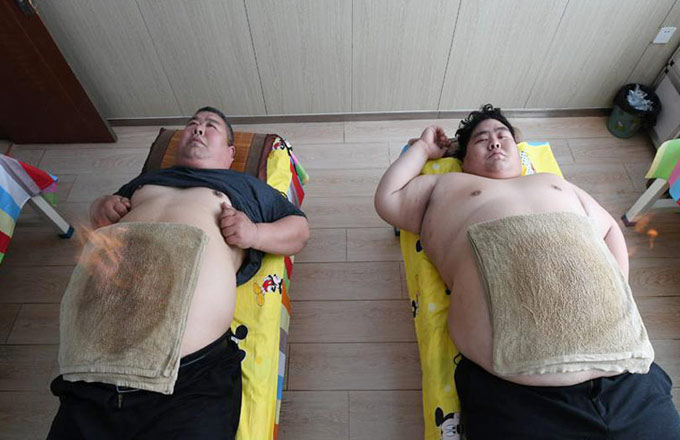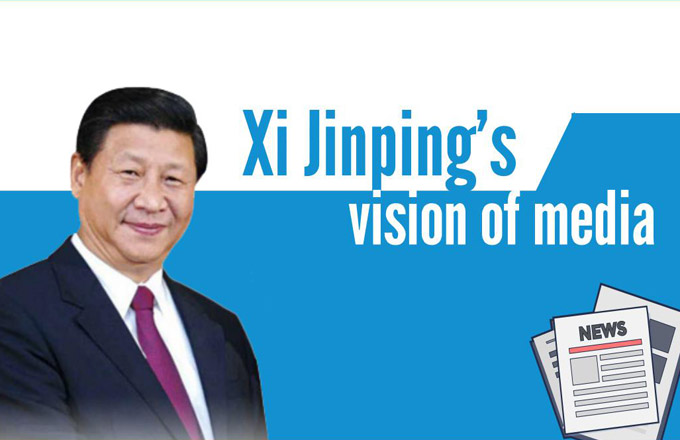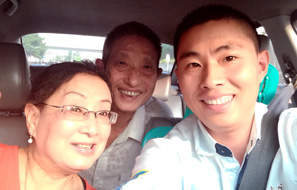What villagers' rise from poverty looks like
Taking a long view
Zuo is one of the 55.6 million people in China who have risen out of poverty since 2013.
In the 31 years from 1981 to 2012, the country cut 72 percent of the world's poor population, according to the China Poverty Alleviation and Development Report for 2016.
Looking back on China's efforts over the decades, Pakistan's Ambassador to China, Masood Khalid, told China Daily: "It is a miracle to lift almost 700 million people out of poverty."
On his visit to Zuo's village last year, Xi told the residents that "no one should be missed" as the country breaks away from poverty, and he underlined the need to "remove poverty with targeted measures".
At a group study session of the CPC Central Committee's Political Bureau earlier this month, Xi urged reinforced awareness and preparedness for eradicating poverty.
As the regions and residents still in poverty are mostly undeveloped and financially weak, Xi warned that "difficulties of poverty relief will increase in the next few years."
For places like Jinggangshan, whose financial burden is smaller than other areas with little development, the top mission is to build a sustainable poverty-alleviation process and to avoid a return to the grim old days, local officials said.
At a news conference of the Jiangxi provincial government on Sunday, Jinggangshan was officially taken off the list of impoverished areas. The poverty rate has dropped from 13.8 percent at the start of 2014 to 1.6 percent today, meeting the national standard for removal.
Liu Hong, Party chief of Jinggangshan, said the ultimate goal is not removing the city from the list, but leading the local people to a better life. The city will focus on achieving sustained income, spiritual support and taking steps "to make the effects stable and long lasting", Liu said.
To ensure fair, efficient identification of households in need, Jinggangshan sorts out those who have no capability of making a living, according to Huang Changhui, deputy chief of the city's office in charge of poverty relief and migration.
The city has them registered on a regular basis and publishes a list of those receiving governmental assistance for public supervision.
Also, the city offers a fund of 10,000 yuan to each of its more than 1,000 households, and it created a nonprofit investment company with the money after obtaining consent from households.
The company invests in local leading companies and earns an annual interest yield of no less than 15 percent for the households, Huang said.
"The four companies we have invested in return an interest of 12 percent, and even more, and the municipal treasury will make up for any shortfall," Huang said.
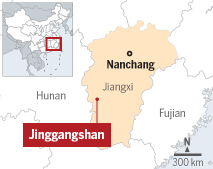
Targeting bureaucracy
Transparency is a high priority. Visitors to poor households that receive assistance from local governments in Jinggangshan may find a placard, hanging high on a wall, stating the name, title and cellphone number of the local official providing assistance.
According to Liu, the Party chief, it's part of the city's effort to ensure full coverage of all the households in need, as well as public supervision of the officials.
"At least one official is assigned to help a poor family, and all of the 3,000-plus officials or Party members in Jinggangshan take part in poverty-relief activities," Liu said.
"They visit the households one by one, thinking and deliberating alongside the villagers on the deep-seated root causes of poverty there in order to find the viable solutions."
Also, Liu said that the city selects those talents who are experts at finding business opportunities, farming and gardening, and introduces them to the poverty relief teams.
Training during winter and spring is offered to batches of Party members to brief them on the latest policies and production techniques.
Xie Ganghua, a local farmer, stopped working as a migrant worker away from his hometown and returned to Jinggangshan's Xincheng township.
He started planting vegetables-such as peppers-in greenhouses in July. He credits his techniques to technicians introduced by the local government.
"The seeds are also provided by the local government," Xie said. "Although I work longer hours now every day, I can also take care of my family."
He is now running seven greenhouses, with a tight schedule and heavy workload every day. "I get up at 5:30 am and arrive at the greenhouses at 6:30," he said.
Then he sends freshly harvested vegetables to market in the nearby township and sells them before he returns and finishes his greenhouse work at 5:30 pm.
"The greenhouses need to be attended on daily basis. If the temperature runs high, I open them. If it is too cold, I keep them closed," Xie said.
And making money is not easy. Each of the greenhouses makes a profit of 2,000 yuan every six months, he said.




